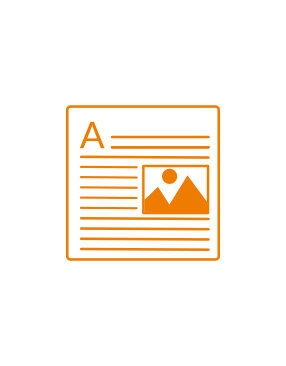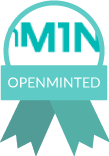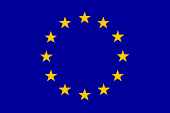Integrating Open Science in an Information Literacy workshop for PhD candidates
TU Delft Library’s Education Support team develops Information Literacy courses for Bachelor and Master students, as well as a workshop for PhD candidates. We aim to create awareness of issues related to Information Literacy and teach students and PhD candidates to understand that Information Literacy is an integral part of their studies or their research.
It is important to include new developments in Information Literacy and in TU Delft policy (such as Open Access publishing and Open Data) in our courses and workshop, because these developments should be part of students’ and PhD candidates’ day-to-day practice. We think that this can best be done by integrating these developments into existing Information Literacy courses and workshops, which are themselves integrated in students’ curricula or PhD candidates’ educational practices (via the TU Delft Graduate School). Additionally, we will in the near future create some separate online Open Science presentations aimed at researchers and policymakers which offer the opportunity to explore specific topics in more detail.
###Background of the workshop
The PhD workshop *How to manage your research information* was about 5 years old in 2015, and although we had continually evaluated and revised it during those 5 years, it was time for a completely new workshop.
The original workshop was based on the [ACRL’s Information Literacy Competency Standards for Higher Education ](http://www.ala.org/acrl/standards/informationliteracycompetency), and topics included:
* Exploration of the research subject (preparation of searching)
* Searching (setting up a search plan, searching, evaluating results)
* Keeping up-to-date (alerts)
* Reference management
* Publishing
The participants in the workshop were still, on the whole, happy with the workshop, but there were some issues with it:
* Data management had been added to the workshop, but was underrepresented, as it had to fit into the existing set-up.
* In Reference management the emphasis was too much on how to use the tools, and not enough on the reasons for organizing your own data and information. What are the risks of *not* organizing data and information properly?
* New and relevant developments in Publishing had been added to our workshop over the years, but this meant that the Publishing section was no longer as coherent as it should be.
* And finally: the very different backgrounds and entry levels of our participants (mostly 1st-year PhD candidates) meant that it was difficult to find the correct starting level for some of the topics in our workshop.
###Content
We decided to base the new workshop on the [Vitae Researcher Development Framework ](https://www.vitae.ac.uk/researchers-professional-development/about-the-…) instead of the international standards for Information Literacy. We felt it was important to treat Information Literacy as part of the PhD candidates’ general development as researchers, and not as a separate issue.
Using the Researcher Development Framework as a starting point, we decided to focus on three skills associated with information and data:
* Searching (exploration; search plan; evaluating results; setting up alerts)
* Organizing (reference management; data management; sharing data and information)
* Disseminating (impact; what do you need to know before you publish your first paper?)
####Open Science, Open Access, Open Data
We believe that Open Science, Open Data, Open Access Publishing should be integral parts of Science, Data, and Publishing. For our workshop, this means that we have included Open Science topics in our workshops wherever relevant.




 Unless otherwise stated, all materials created by the FOSTER consortium are licensed under a CREATIVE COMMONS
ATTRIBUTION 4.0 INTERNATIONAL LICENSE.
Unless otherwise stated, all materials created by the FOSTER consortium are licensed under a CREATIVE COMMONS
ATTRIBUTION 4.0 INTERNATIONAL LICENSE.
 This project has received funding from the European Union’s Seventh Framework Programme for research,
technological development and demonstration under grant agreement no 612425.
This project has received funding from the European Union’s Seventh Framework Programme for research,
technological development and demonstration under grant agreement no 612425.